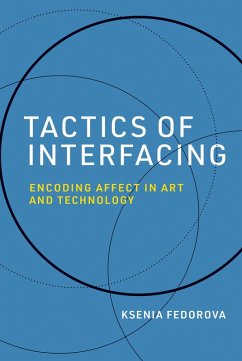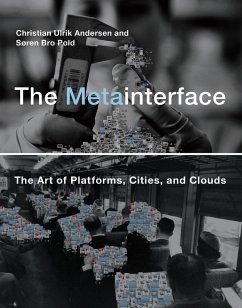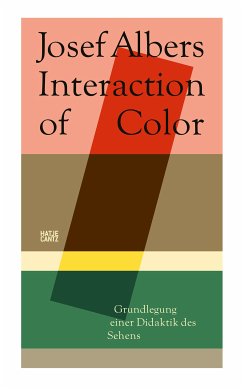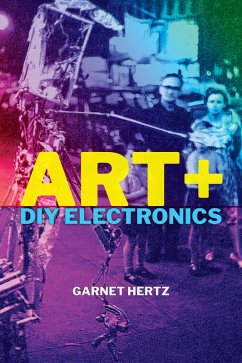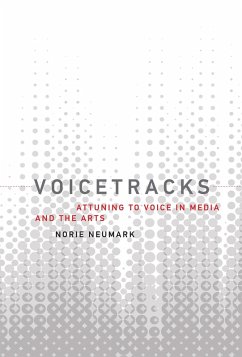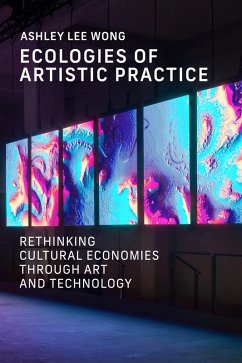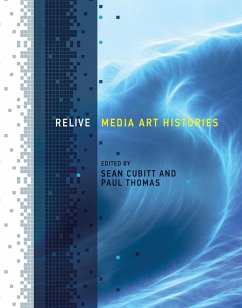
Aesthetics of Interaction in Digital Art (eBook, ePUB)

PAYBACK Punkte
9 °P sammeln!
An art-historical perspective on interactive media art that provides theoretical and methodological tools for understanding and analyzing digital art.Since the 1960s, artworks that involve the participation of the spectator have received extensive scholarly attention. Yet interactive artworks using digital media still present a challenge for academic art history. In this book, Katja Kwastek argues that the particular aesthetic experience enabled by these new media works can open up new perspectives for our understanding of art and media alike. Kwastek, herself an art historian, offers a set of...
An art-historical perspective on interactive media art that provides theoretical and methodological tools for understanding and analyzing digital art.
Since the 1960s, artworks that involve the participation of the spectator have received extensive scholarly attention. Yet interactive artworks using digital media still present a challenge for academic art history. In this book, Katja Kwastek argues that the particular aesthetic experience enabled by these new media works can open up new perspectives for our understanding of art and media alike. Kwastek, herself an art historian, offers a set of theoretical and methodological tools that are suitable for understanding and analyzing not only new media art but also other contemporary art forms. Addressing both the theoretician and the practitioner, Kwastek provides an introduction to the history and the terminology of interactive art, a theory of the aesthetics of interaction, and exemplary case studies of interactive media art.
Kwastek lays the historical and theoretical groundwork and then develops an aesthetics of interaction, discussing such aspects as real space and data space, temporal structures, instrumental and phenomenal perspectives, and the relationship between materiality and interpretability. Finally, she applies her theory to specific works of interactive media art, including narratives in virtual and real space, interactive installations, and performancewith case studies of works by Olia Lialina, Susanne Berkenheger, Stefan Schemat, Teri Rueb, Lynn Hershman, Agnes Hegedüs, Tmema, David Rokeby, Sonia Cillari, and Blast Theory.
Since the 1960s, artworks that involve the participation of the spectator have received extensive scholarly attention. Yet interactive artworks using digital media still present a challenge for academic art history. In this book, Katja Kwastek argues that the particular aesthetic experience enabled by these new media works can open up new perspectives for our understanding of art and media alike. Kwastek, herself an art historian, offers a set of theoretical and methodological tools that are suitable for understanding and analyzing not only new media art but also other contemporary art forms. Addressing both the theoretician and the practitioner, Kwastek provides an introduction to the history and the terminology of interactive art, a theory of the aesthetics of interaction, and exemplary case studies of interactive media art.
Kwastek lays the historical and theoretical groundwork and then develops an aesthetics of interaction, discussing such aspects as real space and data space, temporal structures, instrumental and phenomenal perspectives, and the relationship between materiality and interpretability. Finally, she applies her theory to specific works of interactive media art, including narratives in virtual and real space, interactive installations, and performancewith case studies of works by Olia Lialina, Susanne Berkenheger, Stefan Schemat, Teri Rueb, Lynn Hershman, Agnes Hegedüs, Tmema, David Rokeby, Sonia Cillari, and Blast Theory.
Dieser Download kann aus rechtlichen Gründen nur mit Rechnungsadresse in A, B, BG, CY, CZ, D, DK, EW, E, FIN, F, GR, HR, H, IRL, I, LT, L, LR, M, NL, PL, P, R, S, SLO, SK ausgeliefert werden.




